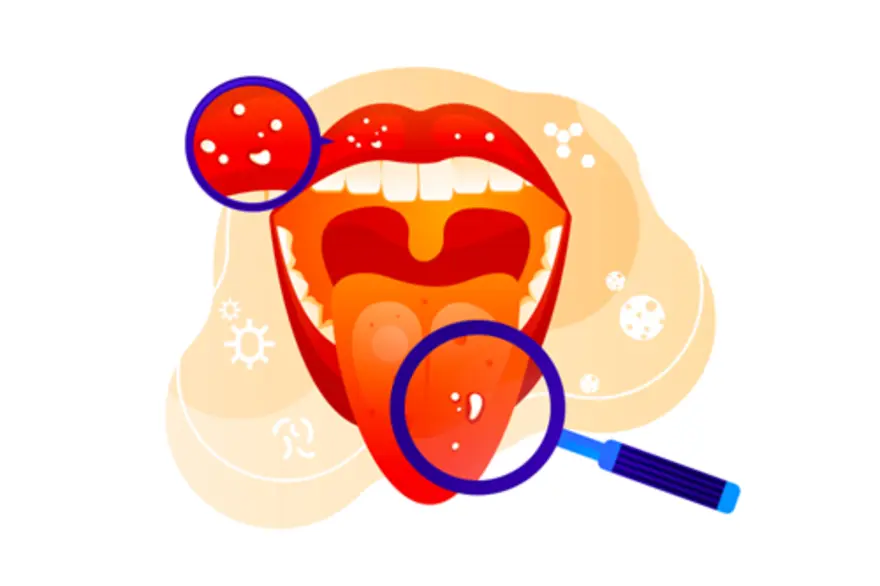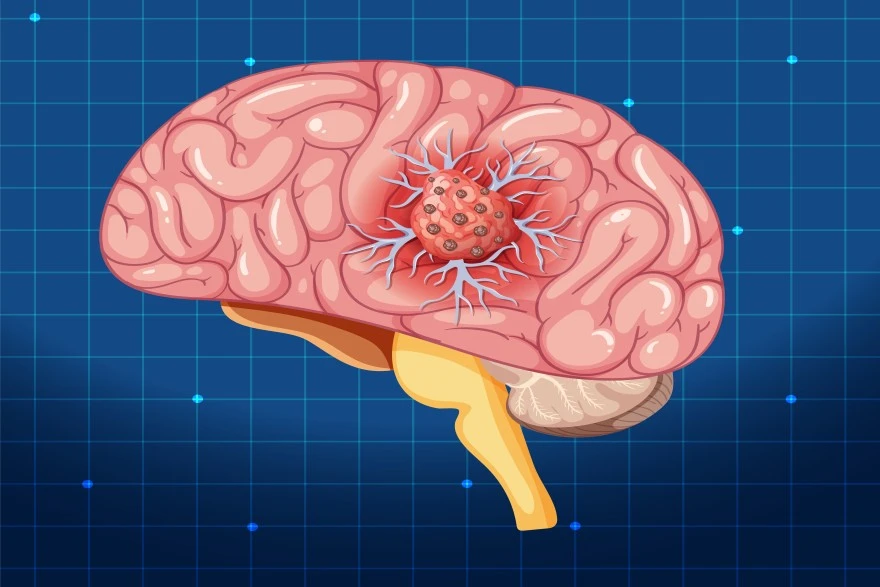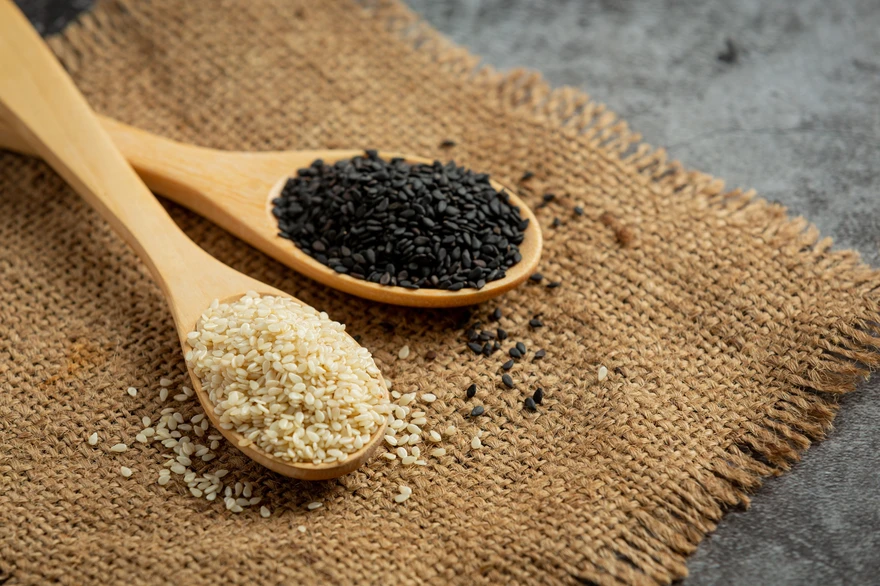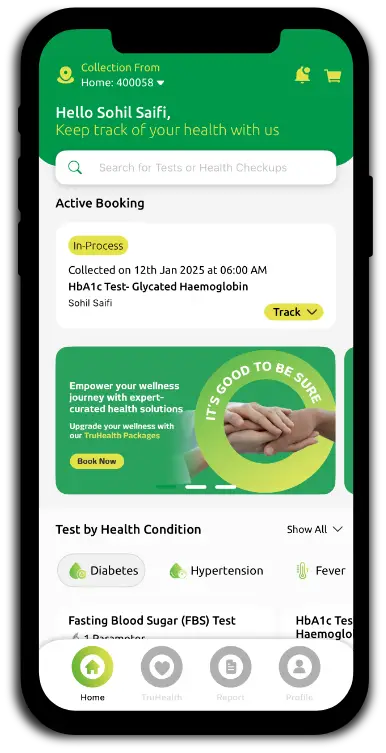Web Stories
Latest Blogs
Schwannoma: Understanding Symptoms, Diagnosis & Treatment Options
What Is a Schwannoma? A schwannoma is a benign nerve sheath tumor that arises from Schwann cells — the cells responsible for producing myelin, the insulating material around peripheral nerve fibers. These tumours typically remain encapsulated and push nerves aside rather than invading them, making surgical removal often successful. Schwannomas can develop anywhere in your body where nerves exist. The most common type is vestibular schwannoma (previously called acoustic neuroma), which affects the vestibulocochlear nerve connecting the inner ear to the brain, which affects the nerve connecting your inner ear to your brain. Spinal schwannomas are also common and may compress spinal nerves, leading to pain, weakness, or sensory changes. Histologically, schwannomas display characteristic Antoni A and Antoni B patterns, often with Verocay bodies and strong S-100 protein positivity, including spindle-shaped cells arranged in specific patterns. These tumours are typically S-100 protein positive, which helps pathologists confirm the diagnosis during biopsy. Causes and Risk Factors of Schwannoma Several factors contribute to schwannoma development: • Genetic mutations: Loss-of-function mutations in the NF2 gene, which encodes the merlin protein, increase schwannoma susceptibility. • Hereditary conditions: Neurofibromatosis type 2 (NF2), schwannomatosis, and Carney complex are genetic syndromes that predispose individuals to multiple schwannomas. • Age factors: Most schwannomas occur in people aged 50-60, though they can develop at any age. • Spontaneous occurrence: Approximately 90% of schwannomas develop randomly without known genetic predisposition. • Gender considerations: Some types, like vestibular schwannoma, show a slight female predominance. Common Symptoms of Schwannoma Schwannoma symptoms vary depending on the tumour's location and size. Here are the most frequently reported symptoms: Localized pain: Often the first symptom, varying from mild discomfort to severe, persistent pain along the affected nerve pathway. Numbness and tingling: Loss of sensation or pins-and-needles feeling in the nerve distribution area. Muscle weakness: Progressive weakness in muscles supplied by the affected nerve. Balance problems: Particularly common with vestibular schwannoma affecting inner ear nerves. Hearing changes: Gradual hearing loss, tinnitus, or ear fullness with acoustic schwannoma. Visible lumps: Palpable masses, especially in superficial locations like arms or legs. Functional impairment: Difficulty with specific movements or activities, depending on nerve involvement. As per the National Cancer Institute, schwannoma can occur at any age and often presents with hearing loss, dizziness, pain, or numbness depending on its location. MRI and CT scans are key diagnostic tools, with biopsy reserved for atypical or uncertain cases. Diagnosis of Schwannoma Diagnosing schwannoma begins with a thorough clinical evaluation where your doctor assesses symptoms, performs a physical examination, and reviews your medical history. They'll look for characteristic signs like localised tenderness, sensory changes, or muscle weakness patterns. Your healthcare provider will enquire about symptom onset, progression, and any family history of genetic conditions like neurofibromatosis. Physical examination focuses on identifying lumps, testing nerve function, and assessing muscle strength in affected areas. Given that schwannoma symptoms can mimic other conditions, imaging studies become crucial for accurate diagnosis. The combination of clinical findings and imaging results helps doctors differentiate schwannomas from other nerve tumours or masses. Diagnostic and Imaging Methods for Detecting Schwannoma Several diagnostic tools help confirm a schwannoma diagnosis: • MRI scan: The gold-standard imaging technique for soft tissue visualization and assessing nerve involvement. • CT scan: Useful for assessing bone involvement and structural relationships, particularly when bony compression is suspected. • Ultrasound examination: Initial screening tool for superficial schwannomas in accessible locations. • Nerve conduction studies: Electrophysiological tests measuring nerve function and identifying areas of compression. • Biopsy analysis: Tissue sampling for microscopic examination and definitive histological confirmation. • Clinical examination: Comprehensive neurological assessment evaluating sensory, motor, and reflex functions. Treatment Options for Schwannoma Schwannoma treatment depends on tumour size, location, symptoms, and patient factors: • Surgical resection: The primary curative treatment, aiming to completely remove the tumor while preserving nerve integrity. • Observation strategy: Active surveillance with regular imaging for asymptomatic or slowly growing tumours. • Radiation therapy: A focused treatment option, often reserved for patients who are not surgical candidates or for residual/recurrent tumors. • Stereotactic radiosurgery: Precise radiation delivery targeting specific tumour areas, minimising healthy tissue exposure. • Symptom management: Medications and supportive therapies addressing pain, numbness, or functional limitations. • Multimodal approaches: Combination treatments tailored to individual patient needs and tumour characteristics. When Is Surgery Necessary for Schwannoma? Surgery becomes necessary when schwannomas cause progressive symptoms that significantly impact your quality of life. Key indications include worsening pain unresponsive to conservative management, progressive numbness or weakness affecting daily activities, and balance problems from vestibular schwannoma. Healthcare providers also recommend surgery when imaging shows rapid tumour growth threatening vital structures or nerve function. For example, a schwannoma spine location causing spinal cord compression requires prompt surgical intervention to prevent permanent neurological damage. The timing of surgery depends on symptom severity, tumour growth rate, and your personal preferences regarding intervention versus observation. Modern microsurgical and neuronavigation techniques aim for complete tumor removal while preserving nerve function whenever possible. Non-Surgical Treatment Options Several non-surgical approaches effectively manage schwannomas: • Active surveillance: Regular monitoring with periodic imaging and clinical assessments. • Pain management: Pharmacological interventions, including nerve pain medications and anti-inflammatory drugs. • Physical therapy: Exercises maintain strength, flexibility, and function in affected areas. • Radiation therapy: External beam radiation or stereotactic techniques controlling tumour growth. • Supportive devices: Assistive equipment helps manage functional limitations. • Lifestyle modifications: Adaptive strategies accommodating symptoms while maintaining independence. What Is the Prognosis for Schwannoma? The prognosis for schwannoma patients is generally excellent, with most experiencing successful outcomes following appropriate treatment. These benign nerve sheath tumors rarely undergo malignant transformation (less than 1% of cases)., with less than 1% showing cancerous transformation throughout a patient's lifetime. Surgical removal typically provides a complete cure, particularly when tumours are well encapsulated and haven't caused significant nerve damage. Most patients experience substantial symptom improvement or complete resolution following successful treatment. However, prognosis varies based on tumour location, size at diagnosis, and timing of intervention. Patients with genetic conditions like neurofibromatosis may develop multiple schwannomas requiring ongoing monitoring and management. Early detection and treatment generally lead to better functional outcomes and reduced risk of complications. Prevention and Managing Schwannoma Risk While most schwannomas occur sporadically, individuals with hereditary risk can take preventive measures and regular screening steps: • Genetic counselling: Essential for individuals with a family history of neurofibromatosis or related conditions. • Regular screening: Periodic imaging and clinical evaluations for those at increased genetic risk. • Symptom awareness: Understanding early warning signs enables prompt medical evaluation and intervention. • Family communication: Informing relatives about genetic conditions allows appropriate screening and monitoring. • Lifestyle considerations: Maintaining overall health supports optimal outcomes if treatment becomes necessary. Conclusion Schwannomas are usually slow-growing and benign, but they can still cause pain, numbness, hearing issues, or weakness if they press on nearby nerves. Early evaluation with imaging — particularly MRI, which is the preferred modality — enables accurate diagnosis and treatment planning, followed by appropriate treatment and regular follow-up, helps prevent complications and supports good long-term outcomes. During diagnosis and monitoring, Metropolis Healthcare supports you with 4,000+ tests, customised full body checkups, and speciality testing, backed by accurate results with quick turnaround times. A strong home sample collection network with 10,000+ touchpoints across India makes testing convenient, and you can easily book through the website or app. With experienced teams and trusted quality, Metropolis is your trusted partner for comprehensive diagnostics supporting schwannoma detection, monitoring, and overall health management. FAQs What is a schwannoma, and how is it diagnosed? A schwannoma is a benign nerve sheath tumour arising from Schwann cells. It is diagnosed using imaging tests such as MRI scans, CT scans, and neurological evaluations. In selected cases, a biopsy may be required to confirm the tumour type or rule out malignancy. What are the treatment options for schwannoma? Some of the treatment options for schwannoma include: Surgical removal Stereotactic radiosurgery Fractionated radiation therapy Observation for small, stable tumours Rehabilitation and pain management Can a schwannoma lead to complications? Yes. Large or untreated schwannomas can compress nerves, leading to pain, numbness, muscle weakness, or hearing loss. In rare instances, a spinal schwannoma can mimic symptoms of a spinal cord tumour, causing mobility issues. Malignant transformation is possible but extremely rare. Is a schwannoma cancerous? Most schwannomas are benign and do not spread to other parts of the body. A very small percentage may become cancerous, forming a malignant peripheral nerve sheath tumour. Regular monitoring helps detect changes early. How is a schwannoma different from a neurofibroma? A schwannoma grows on the outer surface of a nerve and remains well-encapsulated, while a neurofibroma tends to grow within and around the nerve, making surgical removal more complex. Schwannomas are usually solitary, whereas neurofibromas may occur in clusters in genetic conditions. References https://my.clevelandclinic.org/health/diseases/17877-schwannoma https://www.mayoclinic.org/diseases-conditions/schwannoma/cdc-20352974 https://www.ncbi.nlm.nih.gov/books/NBK559312/ https://www.cancer.gov/pediatric-adult-rare-tumor/rare-tumors/rare-soft-tissue-tumors/schwannoma
Burning Mouth Syndrome: Symptoms, Causes & Relief Tips
What is Burning Mouth Syndrome? Burning mouth syndrome (BMS) is a chronic oral pain condition that causes a persistent burning or scalding sensation in the mouth—most often on the tongue, lips, gums, or palate—without visible lesions or evidence of infection. Symptoms typically intensify as the day progresses and may temporarily improve while eating or drinking. Because it may persist for months or even years and more commonly affects women, particularly during peri- and postmenopausal stages, it is important to understand the condition and seek appropriate medical care. Key Facts About Burning Mouth Syndrome Understanding burning mouth syndrome helps you recognise when to seek professional help: More common in women, especially postmenopausal women Usually not linked to visible mouth lesions or infections Can be primary (no identifiable cause) or secondary (linked to underlying conditions) Symptoms often worsen during the day and may improve at night Anxiety and depression are common among people with this condition Not contagious and doesn't increase oral cancer risk May affect quality of life significantly if left untreated Common Symptoms of Burning Mouth Syndrome Recognising burning mouth syndrome symptoms helps ensure timely diagnosis and treatment: Burning or scalding sensation in the mouth (tongue, lips, gums, palate) Persistent dry mouth and increased thirst Altered taste sensations, including a bitter or metallic taste Reduced or altered taste perception (dysgeusia) Tingling, numbness, or stinging in affected areas Pain that may be constant or intermittent Symptoms typically worsen as the day progresses Difficulty sleeping due to discomfort As per an article on Burning Mouth Syndrome published on StatPearls (NIH), burning mouth syndrome is much more common in middle-aged and older women, especially in the peri- and postmenopausal periods, with a 3–7 times higher occurrence than in men. Additionally, it is frequently associated with major depression, chronic anxiety, circadian rhythm disruption, and other neuropsychiatric changes that influence pain perception. Primary vs. Secondary Burning Mouth Syndrome Understanding the two main types of burning mouth syndrome helps guide appropriate treatment approaches. Primary burning mouth syndrome occurs when no clear medical or dental cause is found and is thought to arise from nerve dysfunction affecting pain and taste in the mouth. It is more common in postmenopausal women and may be associated with hormonal changes, stress, or nerve damage. Still, the exact mechanism remains unclear, making it harder to diagnose and treat. What is Secondary Burning Mouth Syndrome? Secondary burning mouth syndrome occurs when the burning sensation is linked to identifiable causes such as nutritional deficiencies (vitamin B12, iron, zinc), dry mouth, oral infections like thrush, acid reflux, poorly fitting dentures, allergies to dental materials, certain medications, or psychological factors like anxiety and depression. Managing these underlying issues often leads to significant relief from symptoms. Possible Causes of Burning Mouth Syndrome Nerve dysfunction: Damage to nerves controlling pain and taste in your mouth. Hormonal changes: Particularly during menopause, when oestrogen levels decline. Nutritional deficiencies: Low vitamin B12, iron, folate, or zinc levels. Dry mouth conditions: Caused by medications, diabetes, or autoimmune disorders. Oral infections: Such as oral candidiasis (yeast infection). Acid reflux: Stomach acid irritates oral tissues. Allergic reactions: To foods, dental materials, or oral care products. Medications: Especially antihypertensives, antidepressants, or anxiolytics. Psychological factors: Stress, anxiety, and depression can trigger symptoms. Dental issues: Poorly fitting dentures or teeth grinding habits. Also Read: Excessive Thirst Risk Factors for Burning Mouth Syndrome Certain factors increase your likelihood of developing this oral pain disorder: Being female, particularly postmenopausal Having nutritional deficiencies Experiencing chronic dry mouth Living with diabetes, thyroid disorders, or autoimmune conditions Taking certain medications regularly Having a history of anxiety or depression Using poorly fitting dental appliances Having food or material allergies Suffering from acid reflux disease How Burning Mouth Syndrome Is Diagnosed Physical examination and oral evaluation: To look for visible infections, irritation, or other oral problems. Blood tests (vitamin levels, thyroid function, anaemia screening): To detect nutritional deficiencies, thyroid issues, diabetes, or anaemia. These are done with tests such as Vitamin Profile Test, Thyroid Profile Test, Anaemia Profile-Nutritional or more as suggested by your doctor. Allergy testing: To identify reactions to foods, dental materials, or oral care products, with an allergy test like the Allergy - Adult (Comprehensive) Panel or Comprehensive Allergy Panel. Saliva tests: To assess saliva flow and composition and rule out dry mouth–related causes. Treatment Options for Burning Mouth Syndrome Effective burning mouth syndrome treatment often involves a multi-faceted approach: Addressing underlying causes: Correcting nutritional deficiencies or treating medical conditions. Medications: Low-dose antidepressants, anticonvulsants, or topical anaesthetics for pain relief. Oral rinses: Saline or sodium bicarbonate rinses to soothe irritated oral tissues. Counselling or cognitive-behavioural therapy (CBT): For managing anxiety, depression, and chronic pain perception. Dental adjustments: Fixing poorly fitting dentures or oral appliances. Lifestyle modifications: Avoiding irritants and improving nutrition. Diet & Lifestyle Tips to Reduce Burning Mouth Sensation Avoid spicy, acidic, or very hot foods and beverages. Drink plenty of water throughout the day. Use mild, alcohol-free oral care products. Chew sugar-free gum to stimulate saliva production. Eliminate tobacco and alcohol consumption. Practice stress-reduction techniques like meditation or yoga. Maintain excellent oral hygiene with gentle products. Complications: What Happens If Burning Mouth Syndrome is Not Treated? If left untreated, burning mouth syndrome can significantly affect quality of life. Chronic pain may interfere with eating, sleeping, and social interactions, leading to poor nutrition, weight loss, anxiety, and depression. Some people develop sleep problems, and if the underlying causes of secondary BMS are not treated, those medical conditions may worsen over time. When to See a Doctor? Seek medical attention if you experience: A burning or scalding sensation lasting more than two weeks. Pain interfering with eating, drinking, or sleeping. Persistent taste changes or dry mouth Additional symptoms like fatigue or weight loss Suspected medication side effects Significant impact on your daily activities Prevention Tips While not all cases are preventable, these strategies may help: Maintain excellent oral hygiene. Stay well-hydrated throughout the day. Follow a balanced diet rich in B-complex vitamins, iron, zinc, and folate. Avoid known irritants like tobacco and excessive alcohol. Manage stress effectively through relaxation techniques. Schedule regular dental checkups for early problem detection. Outlook & Long-Term Management The prognosis for burning mouth syndrome varies from person to person. Many people improve with proper diagnosis and treatment, especially when underlying causes are identified and managed. Primary BMS may last longer and need ongoing strategies, but with appropriate care and regular follow-up, most individuals can control their symptoms and maintain a good quality of life. Conclusion Burning mouth syndrome can be difficult to live with, especially when symptoms persist or the cause isn’t immediately clear. Early evaluation and accurate diagnosis are essential to identify triggers like nutritional deficiencies, hormonal changes, oral infections, or systemic illnesses and to guide effective treatment. At Metropolis Healthcare, you have access to 4,000+ tests, advanced full body checkups, and speciality testing, supported by strong home sample collection across 10,000+ touchpoints. You can book tests easily via website, app, call, or WhatsApp, and rely on quick turnaround times and accurate, quality-assured reports. This combination of comprehensive diagnostics and convenient access helps you and your doctor manage burning mouth syndrome more confidently and proactively. FAQs Section What does burning mouth syndrome feel like? Burning mouth syndrome typically feels like a scalding or burning sensation, similar to having burnt your mouth on hot food. The discomfort may be constant or intermittent and often worsens throughout the day. What vitamin deficiency causes burning mouth? Vitamin B12 deficiency is most commonly associated with burning mouth syndrome. Iron, folate, and zinc deficiencies can also contribute to oral discomfort and burning sensations. Can anxiety cause burning mouth syndrome? Yes, anxiety and stress can trigger or worsen burning mouth syndrome symptoms. The connection between psychological factors and this oral pain disorder is well-established in medical literature. How long does burning mouth syndrome last? Duration varies significantly. Some cases resolve within weeks or months, particularly when underlying causes are treated. However, primary burning mouth syndrome may persist for years and require long-term management strategies. What makes burning mouth syndrome worse? Several factors can exacerbate symptoms: Spicy, acidic, or hot foods and beverages Alcohol and tobacco use Stress and anxiety Certain medications Hormonal fluctuations Is burning mouth syndrome permanent? Not necessarily. Many people experience improvement with appropriate treatment, especially when underlying causes are identified and addressed. However, some cases may require long-term management rather than a complete cure.
Nasopharyngeal Angiofibroma: A Complete Guide
What is Nasopharyngeal Angiofibroma? Nasopharyngeal angiofibroma is a rare, benign but locally aggressive vascular tumor composed of fibrous stroma and proliferating blood vessels that develops in the nasopharynx, the area behind your nose that connects to your throat. This vascular tumor typically originates near the sphenopalatine foramen in the posterior nasal cavity, a small opening in the bones at the back of the nasal cavity. According to the National Library of Medicine and WHO Head and Neck Tumor Classification (2022), these tumours represent approximately 0.05 to 0.5% of all head and neck masses, making them exceptionally rare. Although histologically benign, nasopharyngeal angiofibroma can behave aggressively, invading adjacent structures such as the nasal cavity, paranasal sinuses, and skull base, often invading surrounding structures, including the nasal cavity and sinuses, and potentially extending to the skull base. The primary blood supply arises from branches of the internal maxillary artery, with possible contributions from ascending pharyngeal and internal carotid branches in advanced disease, making it extremely vascular and prone to bleeding. What Causes Nasopharyngeal Angiofibroma? The exact cause of nasopharyngeal angiofibroma remains unclear, though several theories exist among medical professionals. Current research suggests that hormonal influences play a significant role, particularly given the overwhelming male predominance of this condition. One leading theory involves remnants of the first branchial arch, embryonic structures that normally disappear during foetal development. When these structures fail to regress completely, they may contribute to tumour formation in the nasopharynx. Additionally, researchers have identified overexpression of vascular growth factor receptors, particularly vascular endothelial growth factor, which helps explain the highly vascular nature of these growths. Juvenile Nasopharyngeal Angiofibroma (JNA) Overview Juvenile nasopharyngeal angiofibroma (JNA) is the classic presentation, occurring almost exclusively in adolescent males aged 10–25 years, typically affecting males between 10 and 25 years of age. JNA occurs almost exclusively in adolescent males, likely due to androgen sensitivity and hormonal influence during puberty, with peak incidence during adolescence when hormonal changes are most pronounced. Despite being benign, juvenile nasopharyngeal angiofibroma can extend into multiple surrounding structures, including the sinuses, eye socket, and even the brain in advanced cases. Juvenile nasopharyngeal angiofibroma staging becomes crucial for treatment planning, as approximately 10 to 37% of cases demonstrate orbital and intracranial involvement. Early recognition and proper staging help determine the most appropriate treatment approach and predict potential complications. Symptoms of Nasopharyngeal Angiofibroma The symptoms of nasopharyngeal angiofibroma typically develop gradually as the tumour grows larger. Recognising these signs early can lead to prompt diagnosis and treatment: • Persistent nosebleeds: Often severe and recurring, these can be difficult to stop with conventional measures • Nasal obstruction: Usually affects one side initially but may progress to both nostrils • Chronic nasal discharge: Persistent runny nose that doesn't respond to typical treatments • Headaches: Common in advanced stages, resulting from sinus obstruction or intracranial pressure effects • Facial pain: May develop as the tumour extends into surrounding structures • Vision changes: Blurred vision or double vision may occur with orbital extension • Facial swelling: May include drooping eyelids or bulging eyes in advanced cases • Sleep disturbances: Result from nasal obstruction affecting normal breathing patterns • Recurrent sinus infections: Due to blocked drainage pathways Many patients initially mistake these symptoms for common conditions like allergies or chronic sinusitis. The combination of persistent nosebleeds and nasal congestion in teenage boys should prompt immediate medical evaluation. How is Nasopharyngeal Angiofibroma Diagnosed? Diagnosis begins with an otolaryngology (ENT) consultation for history, nasal endoscopy, and imaging assessment and performs a thorough physical examination Nasal endoscopy to directly visualise the tumour within the nasal cavity and nasopharynx CT scan imaging to evaluate tumour size, bone involvement, and extent of invasion MRI scan assessment for detailed soft tissue characterisation and brain involvement evaluation Angiography studies to map the blood supply feeding the tumour Biopsy is generally avoided due to the high risk of profuse bleeding; diagnosis is made radiologically in most cases, may be necessary in certain cases The diagnostic process typically begins when persistent nosebleeds or nasal obstruction prompt medical evaluation. Your ENT specialist will carefully assess your symptoms and may suspect nasopharyngeal angiofibroma based on your age, gender, and symptom pattern. Diagnostic and Imaging Methods for Detecting Juvenile Nasopharyngeal Angiofibroma (JNA) • Physical examination findings: Provides visualisation of a polypoid mass within the nasal cavity • Nasal endoscopy: Provides direct visualisation of the tumour's appearance and location within the nasal cavity • CT scan evaluation: Reveals bone erosion, tumour extent, and relationship to surrounding structures • MRI scan analysis: Offers superior soft tissue detail and helps assess intracranial involvement • Digital subtraction angiography: Essential for mapping feeding arteries and planning preoperative embolization • Three-dimensional imaging: Advanced CT and MRI techniques provide detailed anatomical information Treatment Options for Nasopharyngeal Angiofibroma • Preoperative embolisation: Reduces blood flow to the tumour before surgery, minimising bleeding risk • Endoscopic endonasal resection: Now considered the standard of care for most JNAs, offering excellent visualization with minimal morbidity • Open surgical techniques: Reserved for extensive tumours with skull base involvement • Staged procedures: Multiple operations may be necessary for very large tumours • Radiation therapy: Reserved for unresectable, residual, or recurrent lesions when surgery or embolization are not feasible • Observation: May be appropriate for very small, asymptomatic tumors in older patients or when surgery carries high risk The choice of nasopharyngeal angiofibroma treatment depends heavily on tumour size, location, and staging results. Your surgical team will discuss the most appropriate approach based on your individual circumstances. What is the Prognosis for Nasopharyngeal Angiofibroma? The prognosis for nasopharyngeal angiofibroma is generally favourable when diagnosed and treated appropriately. However, it is significantly influenced by the extent of disease at presentation and the completeness of surgical resection. Early-stage tumours confined to the nasal cavity and nasopharynx typically have excellent outcomes with complete surgical removal. Advanced disease that demonstrates skull base erosion, intracranial extension, or orbital involvement presents greater challenges and may require multimodal treatment approaches. Recurrence occurs in approximately 10–20% of cases, often linked to incomplete surgical excision or inadequate embolization. Long-term follow-up remains essential, as recurrence can occur if tumour removal is incomplete. Regular endoscopic examinations and imaging studies help monitor for any signs of regrowth, ensuring prompt intervention if needed. Risk Factors for Nasopharyngeal Angiofibroma • Male gender, as the condition occurs almost exclusively in males • Adolescent and young adult age between 10 and 25 years old • Family history of familial adenomatous polyposis, which may slightly increase risk • Hormonal factors during puberty and adolescence • Genetic predisposition, though specific genes haven't been identified Is Nasopharyngeal Angiofibroma Hereditary? Nasopharyngeal angiofibroma is not hereditary in most cases; however, rare associations with familial adenomatous polyposis (FAP) have been reported in the traditional sense. Most cases occur sporadically without any family history of the disease. However, research has identified a slight association with familial adenomatous polyposis, a hereditary condition that increases colorectal cancer risk. Families affected by this genetic syndrome may have a marginally higher likelihood of developing nasopharyngeal angiofibroma, though the absolute risk remains very low. The overwhelming male predominance suggests hormonal influences play a more significant role than genetic factors in most cases. This hormonal component may explain why the condition typically manifests during adolescence when testosterone levels are rising. Surgical Treatment of Juvenile Nasopharyngeal Angiofibroma Surgical removal remains the gold standard for juvenile nasopharyngeal angiofibroma treatment. Modern endoscopic techniques have revolutionised surgical approaches, offering better outcomes with reduced morbidity compared to traditional open procedures. Preoperative embolisation typically occurs 24 to 48 hours before surgery to reduce the tumour's blood supply. This crucial step minimises bleeding during the procedure and improves surgical visualisation. The surgical team carefully plans the approach based on juvenile nasopharyngeal angiofibroma staging results and tumour characteristics. During endoscopic surgery, the tumor is accessed transnasally using high-definition endoscopes and image-guided navigation to achieve precise resection using specialised instruments and cameras. This minimally invasive approach allows complete tumour removal while preserving normal anatomy and reducing recovery time compared to external approaches. Postoperative Follow-Up and Care After JNA Surgery • Regular endoscopic examinations to monitor for recurrence and assess healing • Nasal irrigation to maintain clean surgical sites and prevent infection • Activity restrictions during initial healing period, particularly avoiding strenuous activities • Long-term imaging surveillance with CT scan or MRI scan as recommended by your specialist • Prompt reporting of any return of nosebleeds or nasal obstruction • Follow-up appointments as scheduled by your healthcare team Conclusion Nasopharyngeal angiofibroma, particularly juvenile nasopharyngeal angiofibroma, represents a challenging but treatable condition affecting young males. Early recognition of symptoms like persistent nosebleeds, nasal obstruction, and headaches can lead to prompt diagnosis and successful treatment. Modern diagnostic techniques, including CT scan and MRI scan imaging, combined with expert nasopharyngeal angiofibroma staging, enable precise treatment planning. While the prospect of surgery may seem daunting, advances in endoscopic techniques have significantly improved outcomes for patients with nasopharyngeal angiofibroma. Most patients achieve long-term remission and normal quality of life after complete resection and regular postoperative surveillance, returning to normal activities and quality of life. At Metropolis Healthcare, we understand the importance of accurate diagnostic testing in managing complex conditions like nasopharyngeal angiofibroma. Our comprehensive portfolio of more than 4,000 tests includes advanced imaging support services and blood tests that complement your specialist care. With our network of over 220 laboratories and 4,600 service centres, we provide convenient access to reliable diagnostic services when you need them most. FAQs What is nasopharyngeal angiofibroma? Nasopharyngeal angiofibroma is a benign vascular tumour affecting the nasopharynx, primarily occurring in young males and causing symptoms like nosebleeds and nasal obstruction. What are the symptoms of nasopharyngeal angiofibroma? Common symptoms include persistent severe nosebleeds, nasal obstruction, chronic nasal discharge, headaches, facial pain, and potential vision changes in advanced cases. How is nasopharyngeal angiofibroma treated? Treatment typically involves endoscopic surgical resection following preoperative embolisation, with the treatment approach determined by staging and tumour extent. Is juvenile nasopharyngeal angiofibroma curable? Yes, juvenile nasopharyngeal angiofibroma is curable with complete surgical resection, offering an excellent prognosis when diagnosed and treated appropriately. Can nasopharyngeal angiofibroma recur? Recurrence is possible if tumour removal is incomplete, which is why long-term follow-up with regular examinations and imaging remains essential. References 1. https://www.ncbi.nlm.nih.gov/books/NBK545240/ 2. https://my.clevelandclinic.org/health/diseases/21152-juvenile-nasopharyngeal-angiofibroma-jna 3. https://www.theotorhinolaryngologist.co.uk/new/images/pdf/v6_n1/Nasopharyngeal%20Angiofibroma.pdf 4. https://kidshealth.org/en/parents/juvenile-asopharyngeal-angiofibroma.html
Osteochondritis Dissecans: Causes, Symptoms & Recovery Timeline
What is Osteochondritis Dissecans? Osteochondritis dissecans is a joint pain disorder in which the bone just beneath the cartilage weakens due to poor blood supply, causing the bone and overlying cartilage to crack or separate. This can create loose fragments inside the joint, leading to pain, swelling, and locking. It most often affects weight-bearing joints, such as the knee, ankle, and elbow, Most commonly seen in young athletes aged 10–20 who participate in repetitive, high-impact sports. Quick Overview: Key Facts About Osteochondritis Dissecans Osteochondritis dissecans results from a disruption in the blood supply to the bone beneath the cartilage surface. The condition progresses through four distinct stages, from stable lesions to loose joint fragments. Early detection significantly improves treatment outcomes and recovery timelines. Young athletes account for approximately 75% of osteochondritis dissecans cases. The knee joint represents the most frequently affected location, followed by the ankle and the elbow. Non-surgical treatment succeeds in many cases when diagnosed during the early stages. Advanced cases may require surgical intervention to prevent long-term joint damage. Recovery timelines vary from several months for conservative treatment to 12 months for complex surgeries. Common Symptoms of Osteochondritis Dissecans Recognising osteochondritis dissecans symptoms early enables prompt treatment and better outcomes. The condition typically develops gradually, making initial symptoms easy to overlook or attribute to normal sports-related soreness. Activity-related joint pain that worsens during exercise, climbing stairs, or sports participation. Joint swelling and tenderness, especially after physical activity or prolonged use. Mechanical symptoms, including catching, locking, or clicking sensations during movement. Joint instability with feelings of weakness or the joint "giving way" unexpectedly. Reduced range of motion, making it difficult to fully straighten or bend the affected joint. Persistent aching that may occur even during rest periods in advanced stages. Joint stiffness is often most noticeable in the morning or after periods of inactivity. Stages of Osteochondritis Dissecans Understanding the progression helps explain why early intervention proves crucial for successful outcomes: Stage I (Stable Lesion): The bone shows early changes but remains attached. Symptoms may be minimal or absent, making detection challenging without imaging studies. Stage II (Partially Unstable): The lesion begins separating but remains partially attached. Pain and mechanical symptoms become more noticeable during activities. Stage III (Unstable Lesion): The fragment becomes loose but stays within its original location. Significant pain, swelling, and catching sensations develop. Stage IV (Displaced Fragment): The bone and cartilage piece completely separates, creating a loose body within the joint space. This stage causes severe mechanical symptoms and requires surgical intervention. What Causes Osteochondritis Dissecans? The exact osteochondritis dissecans causes remain partially understood, but medical research identifies several contributing factors. The primary mechanism involves disruption of the blood supply to the subchondral bone, leading to tissue death and subsequent weakening. Primary Contributing Factors: Repetitive microtrauma from sports activities creates cumulative stress on developing joints. Blood supply interruption during periods of rapid bone growth in adolescents. Biomechanical abnormalities that create uneven pressure distribution across joint surfaces. Metabolic factors, including nutritional deficiencies, affect bone development. Hormonal influences during adolescent growth spurts affect bone maturation. Previous Injury or Trauma Unlike acute sports injuries, osteochondritis dissecans develops through repetitive stress rather than single traumatic events. Young athletes who specialize in a single sport face an increased risk due to repetitive joint loading patterns. Cumulative microtrauma from repeated jumping, pivoting, or throwing motions. Overuse patterns in sports requiring repetitive joint movements. Training intensity that exceeds the joint's ability to adapt and recover. Early sports specialisation limits movement variety and increases specific joint stress. Genetic Predisposition (Less Common) Research suggests hereditary factors may influence susceptibility to osteochondritis dissecans, though environmental factors play a more significant role. Family history of joint disorders may increase individual risk. Genetic variations affecting bone development and blood vessel formation. Inherited biomechanical traits that alter joint loading patterns. Who is at Risk for Osteochondritis Dissecans? Young athletes aged 10-20 years participating in high-impact or repetitive sports. Individuals with rapid growth periods, when the blood supply to developing bones becomes vulnerable. Athletes specialising in single sports rather than participating in varied activities. Those with biomechanical abnormalities affecting joint alignment and load distribution. Children with obesity are placing additional stress on developing joint structures. Participants in throwing sports such as cricket, baseball, or javelin. Gymnasts and dancers performing repetitive jumping and landing movements As per a 2023 review in the Journal of Children’s Orthopaedics (NIH), osteochondritis dissecans (OCD) of the knee is a rare but important condition in skeletally immature patients. It has an incidence ranging from 2.3 to 31.6 cases per 100,000, peaks between 13–17 years of age, occurs 2–4 times more often in males, and shows a higher risk in non-Hispanic Black children compared with other ethnic groups. Joints Most Commonly Affected The knee joint accounts for approximately 75% of osteochondritis dissecans cases, particularly affecting the medial or lateral femoral condyles. The ankle joint represents the second most common location, typically involving the talus bone. The elbow joint is frequently affected in throwing athletes, especially involving the capitellum. Other locations, including the shoulder, wrist, and hip joints, occur less frequently but require similar treatment approaches. How Osteochondritis Dissecans Is Diagnosed Accurate osteochondritis dissecans diagnosis requires a comprehensive evaluation combining clinical assessment with appropriate imaging studies: Medical History Review: Your doctor examines activity patterns, pain characteristics, and symptom progression to identify potential risk factors. Physical Examination: Assessment includes joint range of motion, stability testing, and palpation for tenderness or swelling patterns. X-ray Imaging: Initial radiographic evaluation reveals bone changes, particularly in later stages when lesions become more apparent. MRI Scanning: Magnetic resonance imaging provides detailed visualisation of cartilage integrity and determines lesion stability—crucial for treatment planning. CT Scanning: Computed tomography (CT) offers excellent bone detail and helps assess fragment size and location for surgical planning. Tests for Osteochondritis Dissecans Standard X-rays show bone changes and loose fragments in advanced cases. MRI with contrast provides superior cartilage and soft tissue detail. CT scans offer precise bone fragment localisation for surgical planning. Blood tests such as CBC (Complete Blood Count), ESR (Erythrocyte Sedimentation Rate), CRP (C-Reactive Protein), Rheumatoid Factor (RF), and ANA (Antinuclear Antibody) help rule out infections, inflammatory arthritis, or autoimmune conditions, help rule out infections, inflammatory arthritis, and metabolic bone or autoimmune conditions that may mimic similar joint symptoms. Treatment Options for Osteochondritis Dissecans Treatment for osteochondritis dissecans depends on age, lesion size and location, and symptom severity, with early intervention often preventing the need for surgery and improving outcomes. Healing potential differs between growing children and adults, so your healthcare team tailors a personalised plan based on these individual factors. Non-Surgical Treatments Conservative management succeeds in many cases, particularly when osteochondritis dissecans is diagnosed during early stages: Activity modification, reducing high-impact sports while maintaining general fitness through low-impact exercises. Immobilisation using braces or casts to protect the affected joint during healing. Physical therapy focusing on range of motion, strength training, and gradual return to activities. Pain management through appropriate medications and activity modification strategies, under medical supervision. Rest and Activity Modification Complete rest from aggravating activities for 6–12 weeks initially. Gradual activity progression under professional supervision as symptoms improve. Alternative low-impact exercises, such as swimming or cycling, help maintain cardiovascular fitness without joint strain. Sport-specific modifications allowing participation while protecting the healing joint. Recovery Timeline for Osteochondritis Dissecans Recovery timelines vary significantly based on treatment approach, lesion characteristics, and individual healing factors: Conservative Treatment (3-6 months): Non-surgical management typically requires 3-6 months of modified activity with gradual return to full sports participation. Arthroscopic Surgery (4-8 months): Minimally invasive procedures usually allow return to sports within 4-8 months, depending on the specific technique used. Open Surgery (6-12 months): Complex reconstructive procedures may require 6–12 months for complete recovery and return to competitive activities. Rehabilitation Phase (ongoing): Physical therapy continues throughout recovery, focusing on strength, flexibility, and sport-specific movement patterns. Possible Complications Without proper treatment, osteochondritis dissecans can cause loose bone and cartilage fragments, ongoing joint damage, and early-onset arthritis, especially in weight-bearing joints like the knee. This may lead to chronic pain, reduced mobility, and long-term limitations in activity in daily activities and sports. When to See a Doctor Persistent joint pain lasting more than 2-3 weeks despite rest and activity modification. Mechanical symptoms, including catching, locking, or clicking during joint movement. Swelling and tenderness that doesn't improve with standard first-aid measures. Activity limitations affecting daily tasks, school participation, or sports performance. Joint instability with feelings of weakness or unexpected "giving way" episodes. Prevention Tips for Osteochondritis Dissecans Encourage sport variety in young athletes rather than early single-sport specialization. Implement proper training progression, avoiding sudden increases in activity intensity or duration. Ensure adequate rest periods between training sessions and competitive events. Maintain a healthy body weight, reducing unnecessary stress on developing joints. Focus on proper technique in sports activities to minimise joint stress. Recognise early warning signs and seek medical attention for persistent joint problems. Long-Term Outlook The prognosis for osteochondritis dissecans depends on age, lesion stability, and how early treatment starts. In general, children and adolescents with stable lesions do very well with conservative care, especially when the condition is detected early, and most can return to normal activities with periodic follow-up to monitor joint health. Conclusion Osteochondritis dissecans is highly manageable when detected early, and timely diagnosis, structured treatment, and proper rehab greatly improve long-term joint health. If you have persistent joint pain, locking, or reduced mobility, getting the right tests at the right time is essential to prevent complications like early osteoarthritis. Metropolis Healthcare supports this journey with 4,000+ tests, full body checkups, and specialty testing, backed by 10,000+ home collection touchpoints, quick turnaround times, and highly accurate results. You can easily book tests via website, app, call, or WhatsApp, and benefit from reliable home sample collection and advanced lab technology to monitor your joint health with confidence. FAQs What does osteochondritis dissecans feel like? It feels like deep, aching joint pain that worsens with activity. Some people experience clicking, catching, swelling, or a feeling that the joint is giving way. Can osteochondritis dissecans heal on its own? In children and adolescents with stable lesions, OCD can heal naturally with rest and activity modification. Adults or cases with loose fragments usually require medical intervention. What causes osteochondritis dissecans in the knee? Repeated stress on the knee, high-impact sports, microtrauma, and reduced blood flow to a segment of bone are the most common causes. Genetics and previous injuries also contribute. Is osteochondritis dissecans serious? Yes. If untreated, it can lead to cartilage damage, loose bone fragments, joint instability, and early osteoarthritis. Early diagnosis ensures better outcomes. How long is the recovery from OCD surgery? Most patients recover in 6–12 months, depending on the procedure, lesion size, and rehabilitation progress. Return to full sports generally takes 9–12 months. Can you walk with osteochondritis dissecans? Yes, but weight-bearing may be painful during flare-ups. Doctors may recommend reduced activity or temporary crutches for severe cases.
Choroid Plexus Tumor: Symptoms, Diagnosis & Treatment
What is a Choroid Plexus Tumor? A choroid plexus tumor is a rare intraventricular neoplasm that arises from the choroid plexus epithelium — the tissue lining the brain’s ventricles responsible for cerebrospinal fluid (CSF) production. The choroid plexus is located within all four ventricles of the brain — lateral, third, and fourth — where it produces and regulates cerebrospinal fluid within your brain, where this specialised tissue continuously produces cerebrospinal fluid. This protective fluid cushions your brain and spinal cord whilst delivering essential nutrients. These Tumors can be either benign (non-cancerous) or malignant (cancerous). Choroid plexus papilloma (WHO Grade I) is benign, whereas atypical choroid plexus papilloma (Grade II) and choroid plexus carcinoma (Grade III) are progressively more aggressive forms. The choroid plexus serves as a critical barrier between your blood and brain tissue, making Tumors in this location particularly significant. As these tumors enlarge, they may obstruct CSF pathways, leading to hydrocephalus and increased intracranial pressure — the main cause of early symptoms, leading to increased pressure within your brain. This pressure buildup often triggers the first noticeable symptoms. Choroid Plexus Tumor Causes The exact cause of choroid plexus Tumor development remains largely unknown, though researchers have identified several contributing factors. Somatic DNA mutations in choroid plexus epithelial cells can trigger uncontrolled proliferation, disrupting normal CSF homeostasis, disrupting normal cellular function and death cycles. Genetic predisposition, particularly germline TP53 mutations seen in Li-Fraumeni syndrome, is the most recognized risk factor for choroid plexus carcinoma. Families with Li-Fraumeni syndrome, characterised by TP53 mutations, show increased risk for developing choroid plexus carcinoma. These genetic alterations affect how cells regulate growth, division, and programmed death. Choroid Plexus Tumor Symptoms Symptoms largely reflect increased intracranial pressure or hydrocephalus, resulting from CSF flow obstruction or overproduction due to blocked cerebrospinal fluid drainage. • Persistent headaches that worsen over time • Nausea and vomiting, particularly in the morning • Irritability or sudden behavioural changes in children • Developmental delays or regression in milestones • Balance problems and coordination difficulties • Vision changes, including blurred or double vision • Seizures that may be new or increasing in frequency • Excessive drowsiness or unusual lethargy • Bulging fontanelle (soft spot) in infants Diagnosis of Choroid Plexus Tumors Comprehensive clinical evaluation: Your doctor assesses symptoms and medical history, and performs neurological examinations MRI: With contrast is the imaging modality of choice, providing detailed information about tumor margins, vascularity, and ventricular anatomy to visualise the Tumor's size, location, and characteristics CT Scan: May reveal coarse calcifications, hyperdense intraventricular masses, or associated hydrocephalus and can detect calcifications within the Tumor Lumbar puncture: May be used selectively to evaluate CSF cytology, especially in suspected choroid plexus carcinoma, but is avoided preoperatively in hydrocephalus due to herniation risk Surgical biopsy: Tissue sample collection during surgery enables precise Tumor classification Neuropathological analysis: Expert microscopic examination determines the exact Tumor grade and type Genetic testing: Analysis for TP53 mutations and other genetic abnormalities that influence treatment planning Imaging and Diagnostic Methods for Choroid Plexus Tumors • MRI typically shows a lobulated, cauliflower-like enhancing intraventricular mass, often attached to the choroid plexus • CT scan shows well-defined masses with distinctive density patterns • Contrast-enhanced imaging highlights blood vessel patterns within Tumors • Diffusion-weighted imaging helps distinguish between benign and malignant types • Spinal imaging checks for Tumor spread throughout the nervous system Risk Factors for Choroid Plexus Tumors • CPC most frequently occurs in children under five, while CPP is more evenly distributed across age groups • Genetic predisposition, including TP53 gene mutations and Li-Fraumeni syndrome • Family history of brain Tumors or hereditary cancer syndromes • Gender variations with slight male predominance in certain age groups Treatment Options for Choroid Plexus Tumors • Gross total surgical resection: It is the cornerstone of treatment and offers the best prognosis, particularly for choroid plexus papilloma and obtain diagnostic samples • Chemotherapy protocols: Chemotherapy (often using cisplatin, etoposide, or vincristine-based regimens) targets residual or disseminated disease, particularly in CPC. • Radiation therapy: Radiation therapy is generally reserved for older children and adults with residual or recurrent CPC, as it is avoided in infants due to neurodevelopmental risks • Clinical trials: Access to emerging treatments, including targeted therapy and immunotherapy • Supportive care: Management of hydrocephalus and symptom control throughout treatment • Multimodal therapy: Combination treatments based on Tumor grade and surgical outcomes Surgical Treatment for Choroid Plexus Tumors Surgery remains the cornerstone of choroid plexus Tumor treatment. The primary goal involves removing as much Tumor as possible whilst preserving surrounding healthy brain tissue. Complete surgical resection significantly improves outcomes for both benign and malignant Tumors. Modern neurosurgical techniques utilise advanced imaging guidance and microscopic precision. When post-operative scans reveal residual Tumor tissue, a second surgery may be recommended, particularly for choroid plexus carcinoma cases. Surgical success depends heavily on Tumor location within the choroid plexus and surrounding anatomy. Chemotherapy and Radiation Therapy • Chemotherapy regimens: Administered after surgery for grade 2 and grade 3 Tumors to target remaining cancer cells • Radiation planning: Recommended for choroid plexus carcinoma and cases with incomplete surgical removal • Treatment timing: Usually begins several weeks after surgical recovery to allow proper healing • Combination protocols: Often used together for aggressive Tumors to improve long-term outcomes • Clinical trial participation: Patients may access newer agents through research studies • Individualised planning: Treatment decisions consider patient age, Tumor grade, and overall health status Prognosis of Choroid Plexus Tumors Prognosis depends on tumor grade, completeness of resection, and patient age. Five-year survival exceeds 90% for CPP but ranges from 40–60% for CPC and treatment completeness. Benign choroid plexus papillomas generally carry excellent outcomes when completely removed. However, choroid plexus carcinoma presents more challenges due to its aggressive nature and tendency to spread. Complete surgical resection represents the strongest predictor of favourable outcomes. Patients achieving total Tumor removal experience significantly better long-term survival rates. Age at diagnosis also influences prognosis, with younger patients often showing remarkable resilience during treatment. Choroid Plexus Tumors in Children Children account for up to 70% of choroid plexus tumor cases, with CPP being more common than CPC, with unique considerations affecting their care. The choroid plexus location in developing brains makes early symptoms particularly concerning for parents. Children typically present with symptoms related to increased brain pressure, including persistent headaches, developmental delays, and coordination problems. Treatment approaches in paediatric cases emphasise balancing aggressive Tumor control with minimising long-term developmental and neurological side effects from chemotherapy and radiation therapy. Choroid Plexus Tumors in Adults While choroid plexus Tumor cases predominantly affect children, adults can also develop these rare brain Tumors. Adult presentations often involve more subtle symptoms that may develop gradually over time. The choroid plexus Tumor symptoms in adults might include persistent headaches, cognitive changes, or subtle neurological deficits. In adults, choroid plexus tumors are rare but may be treated more aggressively, as the risks of radiation and chemotherapy-related neurotoxicity are lower, as the developing brain concerns present in children are not applicable. However, the rarity of these Tumors in adults means treatment protocols often adapt paediatric approaches to adult patients. Conclusion A choroid plexus tumor diagnosis can feel overwhelming, but early detection, multidisciplinary care, and advances in neurosurgical and molecular oncology have greatly improved outcomes, but understanding the condition empowers you to navigate treatment decisions confidently. Early recognition of choroid plexus Tumor symptoms, prompt diagnostic evaluation with MRI scan and biopsy, and comprehensive choroid plexus Tumor treatment at specialised centres offer the best outcomes for patients and families. Working closely with experienced neuro-oncology teams ensures access to the latest therapeutic advances whilst maintaining focus on your overall wellbeing and quality of life. At Metropolis Healthcare, we support your diagnostic needs with comprehensive testing services spanning over 4,000 advanced tests. Our extensive network of 10,000+ touchpoints ensures convenient access to precise diagnostics when you need them most. From routine screenings to specialised neurological assessments, our home sample collection service brings expert care directly to your doorstep. FAQs Can choroid plexus Tumors be cancerous? Yes, choroid plexus carcinoma represents the malignant form, though benign papillomas are more common. Proper biopsy and pathological examination determine the exact Tumor type. How is a choroid plexus Tumor diagnosed? Diagnosis involves MRI scan imaging, CT scan protocols, cerebrospinal fluid analysis, and surgical biopsy. These comprehensive tests confirm the diagnosis and guide treatment planning. What are the symptoms of choroid plexus Tumors? • Persistent headaches and nausea • Vision problems and balance difficulties • Seizures and behavioural changes • Developmental delays in children Is surgery the only treatment for choroid plexus Tumors? Surgery remains the primary treatment, but choroid plexus carcinoma often requires additional chemotherapy or radiation therapy. Treatment plans depend on Tumor grade and individual factors. References 1. https://www.ncbi.nlm.nih.gov/books/NBK539749/ 2. https://my.clevelandclinic.org/health/diseases/choroid-plexus-carcinoma 3. https://www.cancer.gov/rare-brain-spine-tumor/tumors/choroid-plexus-tumors 4. https://www.sciencedirect.com/science/article/pii/S2772610X25000133
Hemangioblastoma: Causes, Symptoms & Latest Research
What is Hemangioblastoma? A Hemangioblastoma is a highly vascular, benign neoplasm arising from vascular stromal cells of the central nervous system. Most Hemangioblastomas occur in the cerebellum (about 70%), followed by the spinal cord and brainstem and, rarely, the temporal lobe cortex. Hemangioblastomas are characterized by an exceptionally rich capillary network, differentiating them from other posterior fossa tumours such as medulloblastoma or metastasis. Studies indicate that around one-quarter of Hemangioblastomas are linked to inherited genetic conditions, most notably Von Hippel–Lindau (VHL) disease, which results from mutations in the VHL gene. Hemangioblastoma Causes • Sporadic occurrence: Most Hemangioblastomas develop randomly without known environmental or lifestyle factors • Von Hippel-Lindau (VHL) disease: This inherited genetic syndrome accounts for 20-25% of cases and significantly increases tumour development risk • Genetic predisposition: Individuals with VHL syndrome carry pathogenic variants in the VHL tumour suppressor gene, leading to abnormal angiogenesis and tumour formation Symptoms of Hemangioblastoma Hemangioblastoma brain symptoms vary depending on tumour location and size. Common presentations include: • Persistent headaches: Often caused by increased pressure inside the skull • Balance and coordination problems: Unsteady gait, intention tremor, or clumsiness due to cerebellar involvement, and impaired fine motor control • Nausea and vomiting: Result from increased intracranial pressure • Dizziness and vertigo: Particularly when tumours affect the cerebellum • Weakness or numbness: In arms and legs, especially with spinal cord involvement • Vision problems: Blurred vision or eye pain if affecting visual pathways • Speech difficulties: When tumours impact language regions or temporal lobe cortex • Cognitive changes: Memory or concentration problems in some cases How is Hemangioblastoma Diagnosed? Clinical assessment: Healthcare providers evaluate neurological symptoms and medical history CT scan imaging: Useful for detecting hyperdense lesions or cystic components and for preoperative planning when MRI is not available MRI scan examination: Detailed imaging reveals precise tumour location, size, and characteristics Digital subtraction angiography: Demonstrates intense vascular blush and feeding arteries, aiding in surgical or embolization planning and tumour vascularity Genetic testing: Recommended for patients with multiple tumours or family history of Von Hippel-Lindau (VHL) disease Biopsy consideration: Biopsy is rarely indicated because Hemangioblastomas exhibit highly characteristic imaging findings; biopsy carries a significant bleeding risk Diagnostic and Imaging Methods for Hemangioblastoma • MRI scan technology: Primary imaging method providing detailed brain tissue visualisation • CT scan assessment: Identifies tumour masses and detects acute or previous bleeding • Contrast-enhanced imaging: Uses special dyes to highlight blood vessels and tumour characteristics • Angiographic studies: Evaluate tumour blood supply for surgical planning • Follow-up surveillance: Regular imaging monitors tumour growth in asymptomatic cases • Advanced imaging protocols: T1 and T2-weighted sequences highlight different tissue properties Hemangioblastoma Treatment Options Hemangioblastoma treatment varies based on tumour size, location, and patient symptoms: • Observation and monitoring: Small, asymptomatic tumours may require only regular imaging surveillance • Surgical resection: Complete tumour removal remains the gold standard treatment • Stereotactic radiosurgery: Precise radiation delivery for surgically challenging cases • Antiangiogenic therapy (e.g., VEGF inhibitors): Represents an emerging adjunct, particularly in recurrent or unresectable VHL-associated lesions • Combined approaches: Integration of multiple treatment modalities for optimal outcomes Surgical Treatment for Hemangioblastoma Gross total surgical resection remains the definitive treatment and is curative in most sporadic cases for Hemangioblastoma treatment. Neurosurgeons carefully remove the tumour whilst preserving surrounding healthy brain tissue. Their high vascularity necessitates meticulous microsurgical technique and sometimes preoperative embolization to minimize intraoperative bleeding to minimise bleeding complications. Complete surgical removal offers excellent long-term outcomes when total resection is achieved. However, surgery carries inherent risks, including bleeding, infection, and potential neurological deficits depending on tumour location. Radiation Therapy for Hemangioblastoma Focused radiation therapy serves as an important alternative when surgery isn't feasible or for recurrent tumours. Modern techniques like stereotactic radiosurgery deliver precise radiation doses whilst sparing healthy brain tissue. This approach proves particularly valuable for patients with multiple tumours associated with Von Hippel-Lindau (VHL) disease. Radiation therapy success rates continue improving with technological advances, though long-term effects require ongoing study. Latest Research on Hemangioblastoma • Complete surgical resection: Remains the gold standard, achieving high progression-free survival rates of 95.1% at 72 months in sporadic cases and 91.1% in VHL-associated spinal tumours, with early intervention optimising recovery outcomes • Stereotactic radiosurgery advances: Stereotactic radiosurgery (SRS) achieves durable local control rates of 78–96% at 10 years, particularly valuable for small, deep-seated, or surgically inaccessible lesions for small, high-risk Hemangioblastomas, with rates of 78-96% at 10 years, particularly suitable for anatomically challenging or asymptomatic tumours • Antiangiogenic therapy: Targets the vascular supply of Hemangioblastomas, showing promise as additional treatment options alongside surgery or radiation, with combined approaches enhancing safety and recovery Prognosis for Hemangioblastoma Patients The outlook for Hemangioblastoma patients is generally excellent when diagnosed early and treated appropriately. Factors influencing prognosis include tumour size, location, patient age, and presence of Von Hippel-Lindau (VHL) disease. Sporadic Hemangioblastomas are typically solitary and cured with a single surgery, whereas VHL patients require lifelong imaging due to multifocal disease, whilst those with VHL syndrome need lifelong monitoring for new tumours. Regular follow-up with MRI scan surveillance ensures early detection of any recurrence or new lesions. Hemangioblastoma in Children Paediatric Hemangioblastoma is exceedingly rare; when present, it almost always occurs in the context of VHL disease but require specialised management approaches. Children with Von Hippel-Lindau (VHL) disease face higher risks of developing multiple tumours throughout their lives, necessitating regular surveillance and coordinated care. Treatment strategies must balance tumour control with preserving developing neurological function, often requiring multidisciplinary teams including paediatric neurosurgeons, oncologists, and rehabilitation specialists. Living with Hemangioblastoma Managing life with Hemangioblastoma involves regular medical follow-up, symptom monitoring, and lifestyle adaptations. Patients often wonder about activity restrictions, work capabilities, and long-term implications. Many individuals with successfully treated Hemangioblastomas return to normal activities, though some may require ongoing physical therapy or occupational support. Support groups and patient organisations provide valuable resources for navigating the emotional and practical challenges of living with a brain tumour diagnosis. Conclusion Understanding Hemangioblastoma empowers patients and families to make informed decisions about their health journey. These benign tumours, whilst concerning at diagnosis, often respond excellently to appropriate treatment. The key lies in early detection, comprehensive evaluation, and personalised treatment planning with experienced medical teams. Modern diagnostic advances — especially in high-resolution MRI and angiographic imaging — enable precise localisation and surgical planning, enable precise tumour characterisation, whilst evolving treatment options, from surgical resection to stereotactic radiosurgery, offer hope for excellent outcomes. At Metropolis Healthcare, we support your diagnostic journey with comprehensive testing services spanning our network of over 220 laboratories and 4,600 service centres. Our home sample collection service brings convenient, reliable diagnostics to your doorstep, ensuring you receive the accurate results needed for informed healthcare decisions. With more than 4,000 tests available, including specialised panels for genetic conditions, we're committed to empowering your health management. FAQs Can Hemangioblastoma be cured? Yes, Hemangioblastoma can often be cured through complete surgical resection, with excellent long-term outcomes and minimal recurrence rates in most cases. What are the early signs of Hemangioblastoma? Early symptoms include persistent headaches, balance problems, dizziness, and coordination difficulties, particularly affecting fine motor skills and walking. How is Hemangioblastoma different from other brain tumours? Hemangioblastomas are benign, slow-growing tumours that don't spread, unlike aggressive tumours such as medulloblastoma or malignant brain cancers. Is surgery always necessary for Hemangioblastoma? No, small asymptomatic tumours may only require monitoring, whilst symptomatic or growing tumours typically benefit from surgical intervention. References 1. https://my.clevelandclinic.org/health/diseases/22738-hemangioblastoma 2. https://www.cancerresearchuk.org/about-cancer/brain-tumours/types/Hemangioblastoma 3. https://www.ncbi.nlm.nih.gov/books/NBK606126/ 4. https://pmc.ncbi.nlm.nih.gov/articles/PMC12309710/ 5. https://pmc.ncbi.nlm.nih.gov/articles/PMC11276307/#sec4-curroncol-31-00293 6. https://www.explorationpub.com/Journals/en/Article/100631
Black Sesame Seeds vs White Sesame Seeds: Nutritional Comparison & Best Uses
The fundamental difference between black and white sesame seeds lies in their processing and Retention of the hull. These calcium-rich seeds originate from the same Sesamum indicum plant but undergo different processing methods that significantly impact their nutritional profiles and culinary applications. Both varieties offer exceptional healthy fats, protein, and minerals. However, processing methods impart distinct characteristics that influence taste, texture, and nutritional density. Understanding these differences empowers you to choose the right variety for your specific health goals and cooking preferences. What Are White Sesame Seeds? White sesame seeds are hulled varieties where the outer shell has been removed during processing. This hulling process creates their characteristic pale, creamy appearance and softer texture. The removal of the hull results in a milder, nuttier flavour that blends seamlessly into various dishes. These seeds are commonly used in tahini production, baking, and as garnishes. Their neutral taste makes them versatile for both sweet and savoury applications. White sesame seeds are readily available in most supermarkets and are often the default choice for many home cooks. What Are Black Sesame Seeds? Black sesame seeds retain their natural hull, giving them their distinctive dark colour and robust flavour profile. This unhulled state preserves more nutrients and creates a slightly bitter, earthier taste compared to their white counterparts. Traditional Asian cuisines, including Chinese, Japanese, and Korean dishes, frequently feature black sesame seeds in desserts, soups, and medicinal preparations. Their striking appearance adds visual appeal to dishes while delivering enhanced nutritional benefits. The retained hull contributes significantly to their superior mineral content. Nutritional Comparison: Black Sesame Seeds vs White Sesame Seeds The black sesame seeds vs white sesame seeds nutrition comparison reveals significant differences, particularly in mineral content and fibre levels: Nutrient (per 100 g) White Sesame Seeds Black Sesame Seeds Calories 565 kcal 573 kcal Protein 17g 18 g Healthy fats 50-54 g 50 g Dietary Fibre 3-4 g 12 g Calcium 60-100 mg 975 mg Iron 2.5 mg 14.5 mg Magnesium 300 mg 351mg Macronutrient Breakdown (Per 100g) The macronutrient profiles show subtle but important differences: Calories: Black seeds contain slightly more energy at 573 kcal versus 565 kcal. Protein: Black sesame seeds provide 18g compared to 17g in white varieties Healthy fats: Both varieties offer approximately 50g of beneficial fats. Carbohydrates: Similar levels at around 23g per 100g serving. Micronutrient Differences The micronutrient comparison highlights why black sesame seeds vs white sesame seeds differ substantially: Calcium: Black seeds contain nearly 10 times more calcium (975mg vs 60-100mg). Iron: Significantly higher iron content in black varieties (14.5mg vs 2.5mg). Magnesium: Black seeds provide 351mg compared to 300mg in white seeds. Antioxidants: The retained hull gives black sesame seeds significantly higher antioxidant levels. Antioxidant Levels Black sesame seeds contain higher concentrations of antioxidants such as sesamin, sesamolin, and anthocyanins. These powerful compounds combat oxidative stress and support cellular health. The intact hull preserves these beneficial substances, making black varieties particularly valuable for those seeking maximum antioxidant benefits. Taste & Texture Differences White sesame seeds have a mild, buttery flavour and smooth texture, suiting subtle or delicate dishes, while black sesame seeds are bolder, earthier, slightly bitter, and crunchier due to the hull, making them better when you want a strong sesame taste and visual contrast. Best Culinary Uses (Black vs White Sesame Seeds) There are many uses of sesame seeds in the kitchen. Some of the most common ones are: Best Uses of White Sesame Seeds White sesame seeds excel in applications requiring subtle flavour and light appearance: Tahini and hummus preparation Bread, crackers, and pastry toppings Salad dressings and light sauces Sushi garnishes and Asian noodle dishes Smooth paste preparations Best Uses of Black Sesame Seeds Black sesame seeds shine in recipes celebrating their distinctive characteristics: Traditional Asian desserts and sweet soups Visual contrast in salads and grain bowls Medicinal preparations and health tonics Ice cream and confectionery applications Crunchy toppings for maximum nutrition retention Health Benefits: Black Sesame vs White Sesame Both varieties offer powerful health benefits: Benefits of White Sesame Seeds White sesame seeds provide numerous health advantages: Rich in healthy fats supporting cardiovascular health Quality plant-based protein for muscle maintenance Rich in B vitamins, which are essential for energy metabolism Cholesterol management through a beneficial fat profile Blood pressure regulation support Benefits of Black Sesame Seeds The black sesame seeds vs white sesame seeds benefits comparison favours black varieties: Superior calcium content supporting bone health Enhanced iron levels combat anaemia Higher fibre promotes digestive wellness Increased antioxidants fighting cellular damage Traditional medicine applications for hair and skin health As per a 2024 review in NIH, sesame seeds are rich in lignans, tocopherols, phytosterols, and polyunsaturated fats that support heart health, improve cholesterol levels, and may lower the risk of cancer and neurodegenerative diseases. Which Sesame Seeds Are Healthier? Black sesame seeds are generally more nutrient-dense than white ones, offering higher calcium, iron, fibre, and antioxidants due to the intact hull, while both types remain healthy choices—black better for mineral boost, white better for a milder taste and easier digestion. How to Choose the Right Sesame Seed for Your Needs Consider these factors when selecting between these calcium-rich seeds: Nutritional priorities: Choose black for maximum minerals and antioxidants Flavour preferences: Select white for mild taste, black for bold flavour Digestive sensitivity: White seeds may be gentler for sensitive stomachs Culinary applications: Match variety to recipe requirements Visual appeal: Use black seeds for a striking colour contrast Storage & Shelf Life Tips Proper storage maximises the benefits of sesame seeds: Store in airtight containers away from light and heat Refrigerate or freeze for extended shelf life Keep away from moisture to prevent rancidity Toast only before use to preserve nutrients Use within six months for optimal flavor and freshness Side Effects & Precautions Consider these important safety considerations: Sesame allergies can cause severe reactions in sensitive individuals High fiber content may cause mild digestive discomfort initially Calorie density requires moderate consumption Monitor intake if you are prone to oxalate kidney stones, as sesame seeds contain moderate levels of oxalates Consult healthcare providers about interactions with medications Conclusion Both black and white sesame seeds are nutrient-dense, calcium-rich seeds that can support digestion, bone health, and overall wellness. Black sesame seeds offer a slight edge in antioxidants, calcium, and iron, while white sesame seeds are more neutral in taste and versatile in everyday cooking. Including either variety in a balanced diet, along with other whole foods, is a simple way to enhance your intake of healthy fats, fibre, and key micronutrients. To complement healthy eating, regular health checkups and accurate diagnostics are essential. Metropolis Healthcare offers 4000+ tests, including full body checkups and speciality testing, along with reliable home sample collection across 10,000+ touchpoints, quick turnaround times, and accurate results. You can conveniently book tests through the website, app, call, or WhatsApp, making it easier to track your health and make informed lifestyle choices. FAQs Are black sesame seeds healthier than white? Yes, the nutrition analysis of black vs white sesame seeds shows that black varieties contain significantly more calcium, iron, fibre, and antioxidants due to Retention of the hull. However, both offer substantial health benefits. Which sesame seeds are better for hair? Traditional medicine favours black sesame seeds for hair health due to their higher mineral content and antioxidants. However, scientific evidence supporting specific hair benefits remains limited. Do black and white sesame seeds taste different? Absolutely. Black sesame seeds vs white varieties differ markedly in flavour—black seeds are earthier and more bitter, while white seeds offer mild, nutty sweetness. Can black sesame seeds whiten skin? No scientific evidence supports skin whitening claims. These calcium-rich seeds provide antioxidants that may support overall skin health, but whitening effects are unsubstantiated. Is it OK to eat sesame seeds daily? Yes, moderate daily consumption of these healthy fat sources is generally safe and beneficial. Start with 1-2 tablespoons daily, unless you have a sesame allergy. Can sesame seeds cause allergies? Yes, sesame is a recognised allergen that can trigger reactions ranging from mild to severe. Those with known sesame allergies should avoid both varieties completely.



























